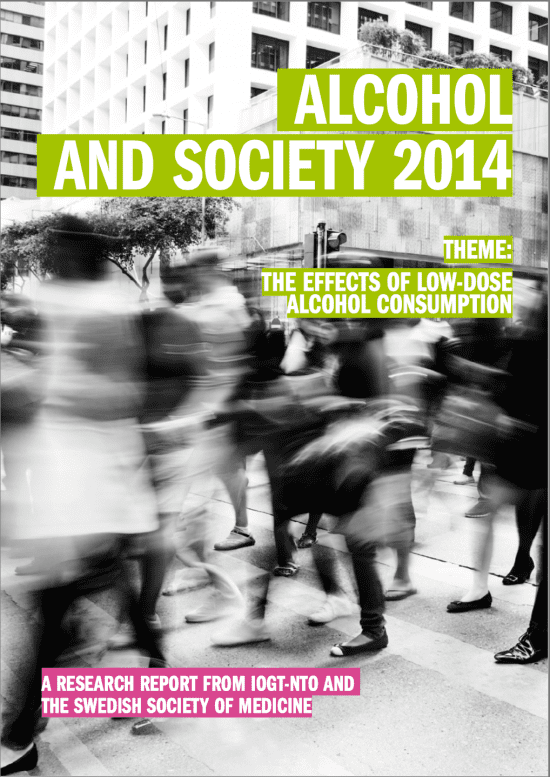Alcohol Issues Newsletter January 09 – 12, 2023
Alcohol Issues Top Stories
- Green Light for Alcohol Warning Labelling in Ireland.
- Findings from Pilot Study Monitoring the Lobbying and Political Donations of Health Harmful Industries in Australia.
- How Big Alcohol Tried to Stop Ireland’s Alcohol Warning Label Through the European Commission.
Most Read Stories
- Norway One Step Closer to Alcohol Warning Labels.
- 6 Reasons Why New WHO Comment on Health Risks From Low Dose Alcohol Use Is a Game Changer.
- Quitting Alcohol Can Improve Cognitive Function for People Experiencing Severe Alcohol Use Disorder.
- Special Feature: Alcohol Warning Labelling, How it works and why it’s needed.
Most Read Stories
Alcohol Issues Special Feature – No. 02
The Effects of Low-Dose Alcohol Consumption
No safe level of alcohol use. Even small amounts cause substantial harm. Why to do away with flawed concept of “harmful use of alcohol”
The public conversation about the real effects of alcohol is getting more momentum. There is increasing recognition, growing evidence, and a clear consensus that there is no safe or healthy level of alcohol, and that already small amounts of alcohol consumption carry serious risk, for example for cancer.
This also means that the discourse about alcohol harm and policy solutions is doing away with the flawed concept of “harmful use of alcohol” for a more evidence-based, less alcohol industry spun, and more population-level focussed discussion about alcohol issues.
Health and cancer risks associated with low levels of alcohol consumption
The risks and harms associated with alcohol use have been systematically evaluated over the years and are well documented. The World Health Organization has published a statement in The Lancet Public Health: when it comes to alcohol consumption, there is no safe amount that does not affect health.
Scientific language is often difficult to understand. But the new WHO statement on the harms of low dose alcohol use contains a number of clear key messages, both in the comment itself and in the press release that accompanied the scientific comment.
- It is the alcohol that causes harm, not the beverage.
- Alcohol causes cancer.
- Risks start from the first drop.
- Already small amounts of alcohol carry cancer risk.
- There is no safe or healthy amount of alcohol consumption.
Research report: The effects of low-dose alcohol consumption
A research report from the series “Alcohol and Society” produced by IOGT-NTO and the Swedish Society of Medicine, in collaboration with some of the world’s leading scientists in the field: Sven Andréasson, Tanya Chikritzhs, Frida Dangardt, Harold Holder, Timothy Naimi and Tim Stockwell.
This report summarizes and examines the scientific evidence regarding the health effects of low-dose alcohol consumption, and discusses the implications of this research for clinical practice, low-risk alcohol consumption guidelines, and alcohol policy development.
The existing evidence finding cardiovascular benefits from low-dose alcohol consumption is weak, and emerging evidence suggests that these protective effects are spurious (i.e., do not exist, or are harmful).
The view that alcohol confers health benefits is therefore even less of a valid counter-argument against the adoption of effective alcohol control policies (e.g., those which reduce alcohol’s availability and affordability).
- There have been no “randomised” studies of low-dose alcohol consumption and any disease or death outcomes to confirm findings from non-randomised studies. Randomised studies are the gold standard used to determine the safety and effectiveness of medical drugs.
- There are many methodological problems with non-randomised (i.e., observational) studies.
- A large international genetic (Mendelian) randomisation study found that having a genetic disposition that causes less alcohol use is associated with a significantly reduced risk of coronary disease, even among those who consume low amounts of alcohol.
- Studies of populations that have experienced reductions in total alcohol consumption do not find any evidence of increased rates of cardiovascular disease.
- From the public health perspective, governments should adopt and improve effective alcohol policy solutions to reduce alcohol deaths, social problems and economic costs.
4 Reasons WHO Should Quit the Concept of ‘Harmful Use of Alcohol’
Discussing and doing something about alcohol harms is very important. But in this conversation and work, flawed and harmful concepts are serving alcohol industry interests, instead of the interests of people and communities.
In this opinion column, Mahesh exposes and examines four reasons why the concept of ‘harmful use of alcohol’ is problematic, how it benefits Big Alcohol, and why we all and especially the World Health Organization (WHO) should quit using this concept.
The problem with “drinking responsibly”
A blog post for the UK Alcohol Health Alliance by Colin Shevills
The alcohol industry has long used the message ‘drink responsibly’ when promoting its products. But what does this phrase even mean? In this blog, Colin Shevills, Special Adviser to the Alcohol Health Alliance, argues why we need to take public health messaging out of the hands of the alcohol industry and call time on the ‘drink responsibly’ message.
The Alcohol Issues Podcast
The Alcohol Issues Podcast is an original production by Movendi International. It’s a show about current alcohol issues of global importance. Through in-depth conversations with policy makers, community leaders and scientists, we explore alcohol policy issues, discuss landmark scientific studies, and expose the alcohol industry.
The Alcohol Issues Podcast is a unique resource to stay updated about latest developments in the field of alcohol policy and science. We make complex issues more easily understandable and drive the global conversation about modern alcohol policy solutions.
Upcoming Events Calendar 2023


